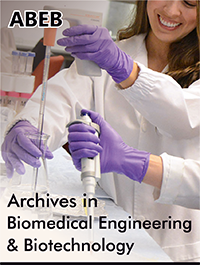 Research Article
Research Article
New Self-Assembling Formulation Technology Improves Transepithelial Transport of Curcuminoids in Vitro and is Capable to Support the Rising Wishes for Sustainable Vegan Nutrition
Karin Engelhart Jentzsch1*, Stephanie Krueckeberg2 and Tobias F Singer2
1BioTeSys GmbH, Schelztorstrasse 54-56, 73728 Esslingen, Germany
2Qineva GmbH, Am Gleis 3, 92521 Schwarzenfeld, Germany
Karin Engelhart Jentzsch, BioTeSys GmbH, Schelztorstrasse 54-56, 73728 Esslingen, Germany
Received Date: September 24, 2021; Published Date: October 10, 2021
Abstract
The relative bioavailability of lipophilic nutritional supplements is largely dependent on the delivery system. This is especially true for curcumin, which is extracted from the turmeric root (Curcuma longa L.) and which is becoming increasingly popular due to its antioxidant, anti-inflammatory and other described health protecting properties. In the present study, we present a new technology as delivery system for lipophilic compounds, the Vitaresorp® technology. The technology is based on the use of special phospholipids, which act as carriers for the active components in an oilbased formulation. The technology takes advantage of the ability of phospholipids to spontaneously form micelles in an aqueous environment which naturally occurs during gastro-intestinal passage. The use of plant-based phospholipids supports the rising wishes for sustainable vegan nutrition. In this study, we present comparative data for the transepithelial transport of curcuminoids using the new technology with different phospholipids or powder across the epithelium of the widely used CaCo-2 cell model after an in vitro simulation of the digestion process. The results demonstrate the formation of nanosized particles with improved adherence to intestinal cells and up to 6-fold improved transepithelial transport of curcuminoids compared to powder when delivered with the Vitaresorp® technology. It can be assumed that the principal of this formulation technology can be also applied to other lipophilic plant ingredients with long history of save use, which is mandatory for the use as dietary supplement, or micronutrients with low in vivo bioavailability like iron. Further review of our results on the basis of clinical studies is recommended.
Keywords:Nanoemulsion; Self-assembling; Bioavailability; Caco-2 model; Curcuminoids; Micronutrients; Vitamins
Abbreviations: MTT: Methylthiazolyldiphenyl-Tetrazolium Bromide; MEM: Minimal Essential Medium; FBS: Fetal Bovine Serum; NEA: Non- Essential Amino Acids; PMSF: Phenyl Methyl Sulfonyl Fluorid; TEER: Transepithelial Electrical Resistance; CC: Curcumin; DMCC: Desmethoxy Curcumin; BDMCC: Bisdemethoxy Curcumin; THCC: Tetra Hydro Curcumin; HPLC: High-Performance Liquid Chromatography; UHPLC: Ultra High- Performance Liquid Chromatography
-
Karin Engelhart Jentzsch, Stephanie Krueckeberg, Tobias F Singer. New Self-Assembling Formulation Technology Improves Transepithelial Transport of Curcuminoids in Vitro and is Capable to Support the Rising Wishes for Sustainable Vegan Nutrition. Arch Biomed Eng & Biotechnol. 6(1): 2021. ABEB.MS.ID.000632. DOI: 10.33552/ABEB.2021.06.000632
-
Nanoemulsion, Self-assembling, Bioavailability, Caco-2 model, Curcuminoids, Micronutrients, Vitamins, Tetra Hydro Curcumin, Phenyl Methyl Sulfonyl, High-Performance Liquid Chromatography
-

This work is licensed under a Creative Commons Attribution-NonCommercial 4.0 International License.






